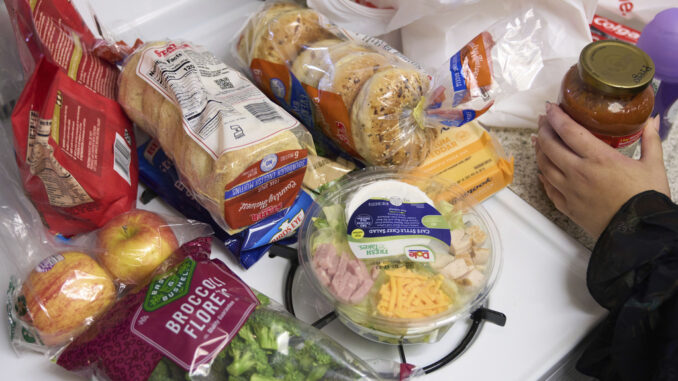
NEW YORK — Student and legal advocacy groups are petitioning the U.S. Department of Agriculture to lift the interview requirement for Supplemental Nutrition Assistance Program (SNAP) applicants to receive food aid.
The groups argue the interview requirement is burdensome and prevents those who qualify for food aid from receiving it. The National Student Legal Defense Network, the Center for Law and Social Policy, and the California Student Aid Commission are among the organizations calling for its removal. A spokesperson for the Department of Agriculture said the agency is reviewing the proposal.
SNAP helps low-income families supplement their budgets so they can buy groceries, snacks, and non-alcoholic beverages. An estimated 42 million Americans currently receive the monthly benefits at an average of $212 per person or $401 per household.
Currently, within 30 days of an application for SNAP, a state agency must complete an applicant’s initial certification interview, either by phone or in person.
Expedited interviews may take place within a seven-day window for people in particular need who meet certain income criteria. Seasonal farm workers, migrants, and certain other households may also receive expedited interviews.
Eligible households next receive a notice indicating their certification period, or how long they’ll receive SNAP benefits. Before that period ends, a participant’s local SNAP office contacts them with information on how to re-certify.
When SNAP was established in 1978, the Agriculture Department kept the interview requirement inherited from the previous food stamp program, stating that the interview both helps the agency understand a household’s circumstances and helps the household understand the program.
“On the basis of past experience, the department believes that the interview is critically important to the certification process and must be carefully monitored and regulated,” the agency said at the time.
But interviews are not mandated by the federal statute governing the SNAP program, the organizations petitioning the government note. They argue that the current regulatory requirement is an outdated bureaucratic hurdle.
A 2021 review of enrollment data in California found that 31% of SNAP applicants in Los Angeles County were denied SNAP due to missing their interview, compared to just 6% who were denied for failing to meet eligibility requirements. Missed-interview denials were even higher among working families and college applicants, affecting as many as 40% of otherwise eligible applicants.
Allan Rodriguez, press secretary for the USDA, said 78% of people eligible for SNAP participated in the program and received benefits from October 2019 to February 2020, the last pre-pandemic period from which data is available.
During the pandemic, when interview and other requirements were eased, the USDA encouraged states to use existing program flexibility to improve access to SNAP, such as by using online or phone SNAP applications or allowing participants to stay on SNAP without reapplying for the maximum amount of time allowed.
In a recent report, the Center for Budget and Policy Priorities found that the interview requirement “can be an important way for states to gather accurate information and for applicants to have their questions answered, but it can be a labor-intensive task and delay approval.”
Student Defense President Aaron Ament said the organization hears too often about obstacles students face to scheduling the required government SNAP interviews when juggling schoolwork, a job, and childcare or eldercare.

